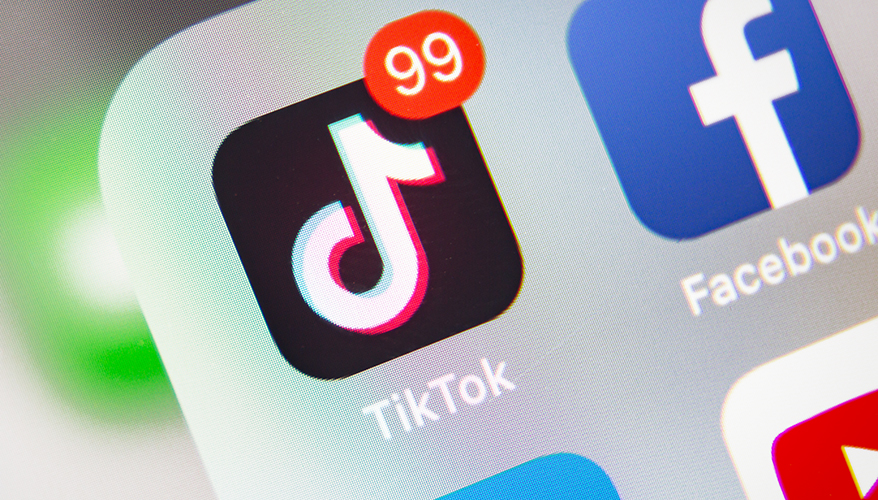GOVERNMENT POLICY
JUST IN: TikTok Ban Issued for Federal Government Contractors
By Allyson Park

iStock photo
A new Federal Acquisition Regulation clause prohibits contractors from “having or using” TikTok on any devices used to conduct official business.
The new FAR clause, published on June 2, builds on February White House instructions to federal agencies to eliminate TikTok from official networks and requires federal contractors to amend their policies to comply with the interim rule by July 3.
Dismas Locaria, a government contracts attorney at Venable LLP, said June 23 that the new FAR clause applies to any and all devices used by federal contractors to conduct official business, regardless of whether they are owned by the government, the contractor or the contractor’s employees, meaning it can extend to include personal devices.
“It doesn't matter whether that device is owned by a contractor or by the employee of a contractor, so it absolutely would cover personal devices,” Locaria said. “This [ban] is a type of thing that could cause people to go back to having multiple devices specifically for work. You can have a more secure device that you use for government contracts, and you only have work-approved apps. And you can also have a personal device where you can have your personal apps.”
According to a Venable alert, “it is likely that most, if not all, federal contractors will encounter at least some employees who currently have the app on a company device or a personal device used for performance of a government contract, such as for email or work-from-home arrangements. Because of this, the government's advice to focus on effective employee communications and training will prove essential for an effective compliance effort. Important questions to address with employees will include which devices are impacted (whether company or personal) and even why the ban exists.”
Concerns about the Chinese-owned TikTok and its potential danger to U.S. national security and defense have grown in recent years. In 2020, the Trump administration threatened a national ban of the app unless it sold itself to a U.S. based company, spurring a legal battle between the federal government and TikTok.
The Biden administration replaced Trump’s TikTok-targeted initiative with a broader one focused on investigating technology linked to foreign adversaries, and government investigation of the app diminished briefly.
According to CNN Business, lawmakers renewed their scrutiny of TikTok for its ties to China through its parent company ByteDance after a report last year suggested U.S. user data had been repeatedly accessed by China-based employees. TikTok has disputed the report.
TikTok’s data collection limitations are something that the government should be extremely cautious of, Locaria said.
“Lots of apps run in the background and collect different types of data and information on the device that they've been loaded to,” he said in an interview. “There are ways to kind of limit that to a degree, but I think the concern here is that the limitations on the TikTok app … [don’t] completely eliminate their ability to obtain, collect and presumably transmit this data back to the Chinese company, and potentially the Chinese government.”
The TikTok ban is a very controversial and legally complicated issue for companies to address and amend their policies for, Locaria said.
“Companies have to either [implement] very stringent policies that don't allow TikTok to be put on devices, which I don't think would be very popular, or they're going to have to write broad policies that leave a lot to people to interpret in terms of application,” he said. “I think right now most are taking the latter approach, which is broad-principle policies, trying not to be overly burdensome on their workforce.
“It would be a common misconception to think that this will never apply to you. Making sure that people remain aware of it is critical, because their circumstances may change where things were incidental, and now they're not,” he continued. “If it's left to the employees to figure out whether they can or cannot have TikTok on their device, then they need to keep in mind that circumstances change. Even though it may not apply to you today, it could apply to you in the future. The constant, repetitive reminder of the issue is important.”
